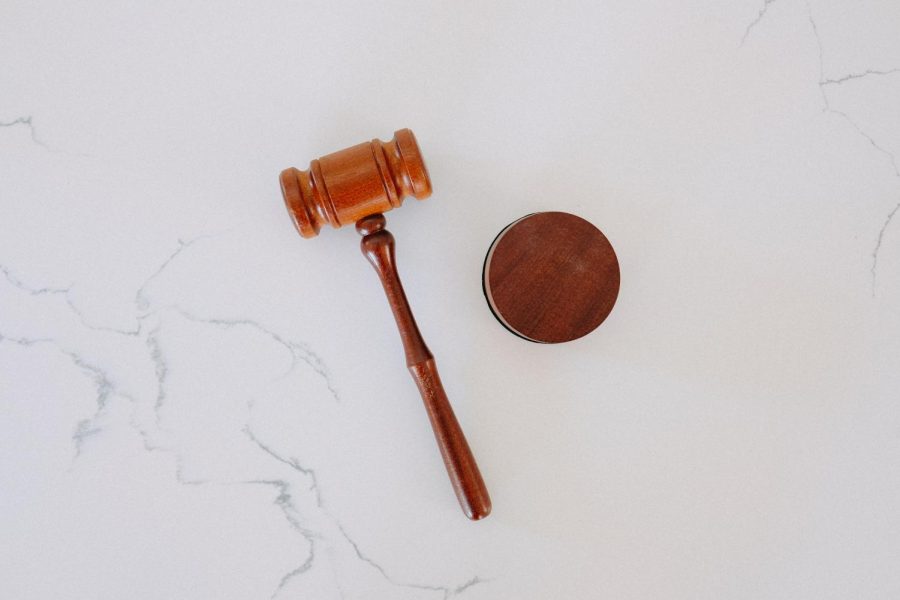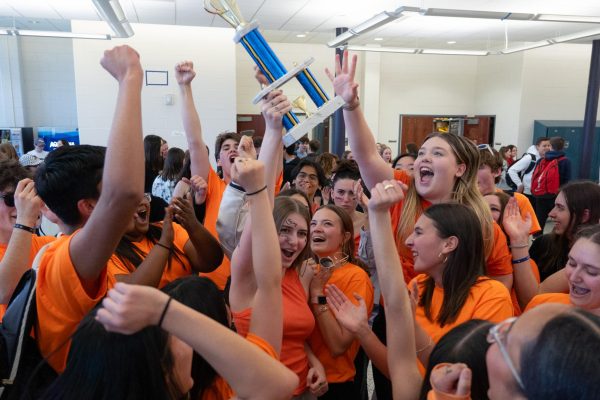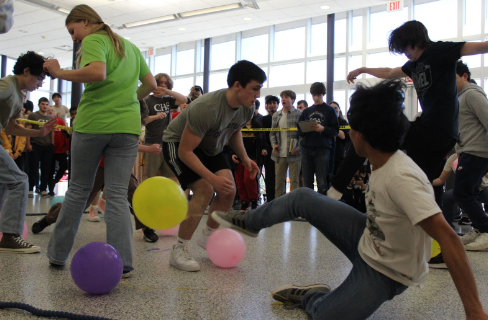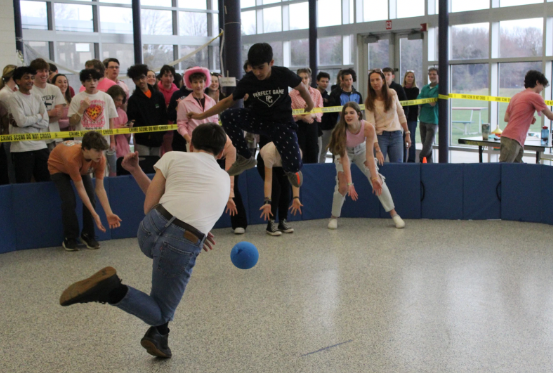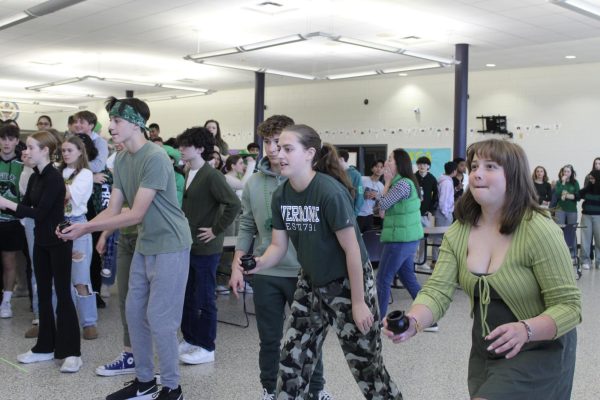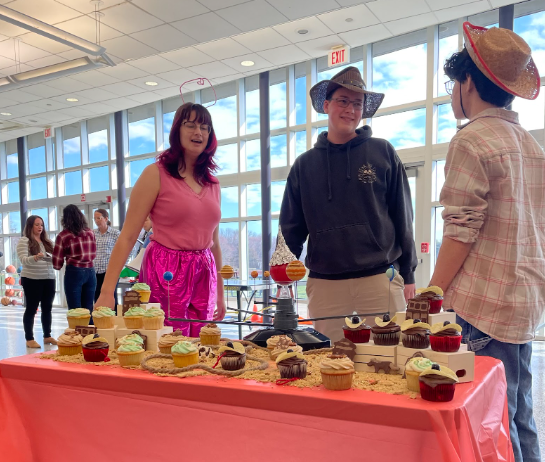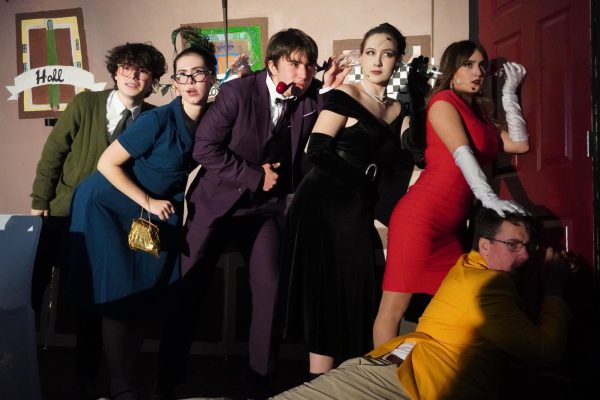CHS students weigh in on leaked Roe v. Wade document
UNSPLASH PHOTO COURTESY OF Tingey Injury Law Firm
The Roe v. Wade debate has CHS students discussing this important topic. https://unsplash.com/license
May 20, 2022
As the world pored over celebrity outfits at the Met Gala, news slowly crept onto social media timelines that a leaked Supreme Court document that — if finalized — had the potential to overturn the landmark Roe v. Wade decision, which declared abortion to be a constitutional right.
Unrest quickly engulfed the nation, with protests breaking out from coast to coast the following day. At CHS, the feeling of unease is palpable, with students fearful about what could happen to a decision that has stood for over 40 years.
“I am scared for myself, and I am scared for women in general,” junior Naomi Gelfond of Marlboro said when asked about her reaction to the leaked draft.
The first court case of Roe v. Wade began in Texas in 1970 when “Jane Roe,” a fictional identity of plaintiff Norma McCorvey, filed a lawsuit against her local district attorney Henry Wade. According to McCorvey’s obituary in the Washington Post, she sued for the ability to legally and safely end a pregnancy that she did not wish to proceed with.
After a three-judge panel on the U.S. District Court for the Northern District of Texas ruled in favor of McCorvey, the state of Texas appealed. The lawsuit found its way to the Supreme Court, where the justices ruled 7-2 in favor of the plaintiff.
The original decision, written by Justice Harry Blackmun in 1973, ruled that abortion was a constitutional right, provided through the “right to privacy” given by the Fourteenth Amendment. Women would have the option to terminate a pregnancy before the point of fetal viability, the point at which a fetus can survive outside of the womb.
The decision has remained in place for 49 years but has always garnered controversy. Since the decision’s inception, anti-abortion groups have vehemently campaigned for its reversal, sometimes in violent manners. According to National Abortion Federation, the professional association of abortion providers, there were 7,342 incidents of violence toward abortion providers between 2010 and 2020.
If the draft is indeed the final opinion of the Supreme Court, Roe will be overturned. While some liberal states will maintain the right to a safe abortion, conservative-leaning states may revert back to the pre-Roe law.
Thirteen states have “trigger laws,” which are not enforceable unless a circumstance occurs that would become effective the second Roe is overturned. These laws would effectively ban or heavily restrict abortions in each state.
According to the Washington Post, 97,000 legal abortions were performed in states with these laws in 2019. Some students at CHS fear for people residing in those states and how their lives would be affected if the decision is overturned.
“I’m terrified for those people,” junior Jen Talmage of Middletown said. “It’s genuinely terrifying that the right for children to not have to have children, their right to choose what they want to do with their lives, could be taken away.”
Protests, both for and against abortion rights, took place in New Jersey in the days following the leak. Junior Mary Jodry of Neptune City attended a rally in support of Roe v. Wade on Wednesday, May 4. Jodry believes that it is her duty to stand up for others when protesting this issue.
“I feel like it’s my responsibility, as someone who might not only could one day need this, but also has had experience with and knows people who have had abortion, to fight for people who don’t have the ability to fight,” Jodry said.
Sophomore Eliza Madore of Atlantic Highlands notes that while Roe v. Wade mostly affects women, the Supreme Court is male-dominated, with six male justices to three female justices on the bench. Madore believes that the Supreme Court is failing to take into stock how female opinion is towards Roe v. Wade.
“[The Supreme Court] isn’t considering how women actually feel about [Roe v. Wade],” Madore said. “Considering that most of the people making this decision are not women, they should not be choosing to do this.”
Senior Hope Schneider of Tinton Falls feels that if Roe is overturned, abortions, although illegal, would not cease; rather, women needing to terminate a pregnancy would find an alternative way to do so.
“Banning abortions doesn’t mean that abortions end,” Schneider said. “It means that safe abortions end.”
Schneider’s claim is supported by a study by the World Health Organization (WHO) from 2017. According to the study, approximately 25 million unsafe abortions (45% of all abortions) occurred worldwide every year between 2010 and 2014. In Latin American and Africa, where many countries have a ban on abortion, three of every four abortions are deemed unsafe.
As Roe hangs in the balance, students at CHS continue to wait with trepidation, scared for the future.
“Roe v. Wade was a huge step forward for women’s rights,” Gelfond said. “Taking it away is extremely dangerous and terrifying.”



